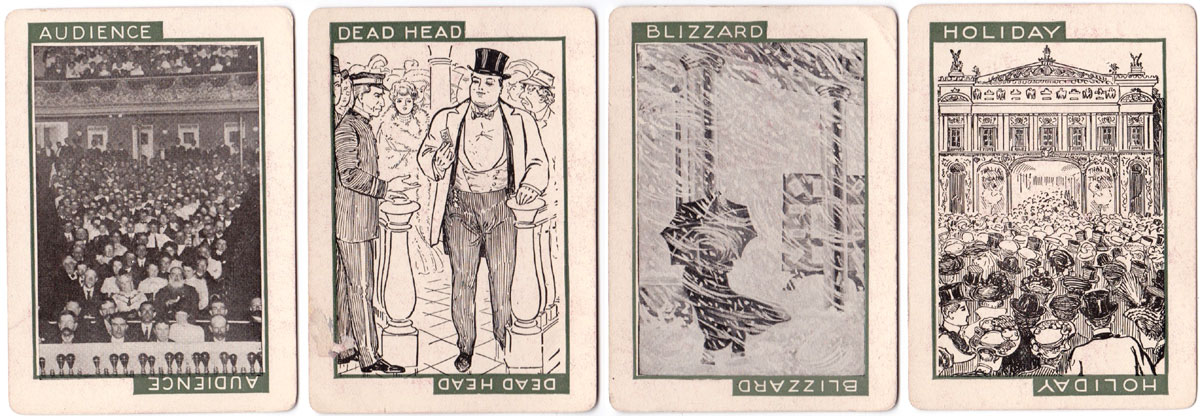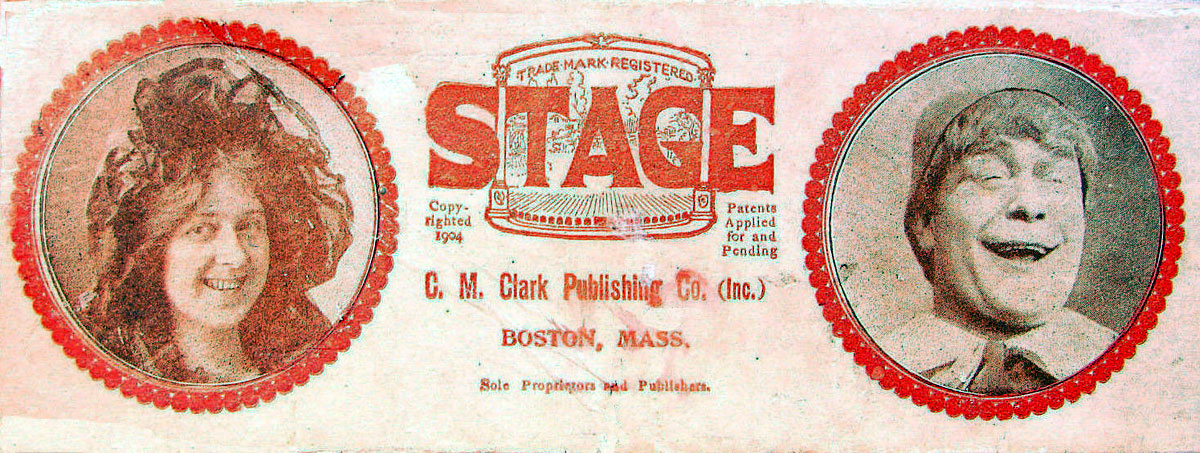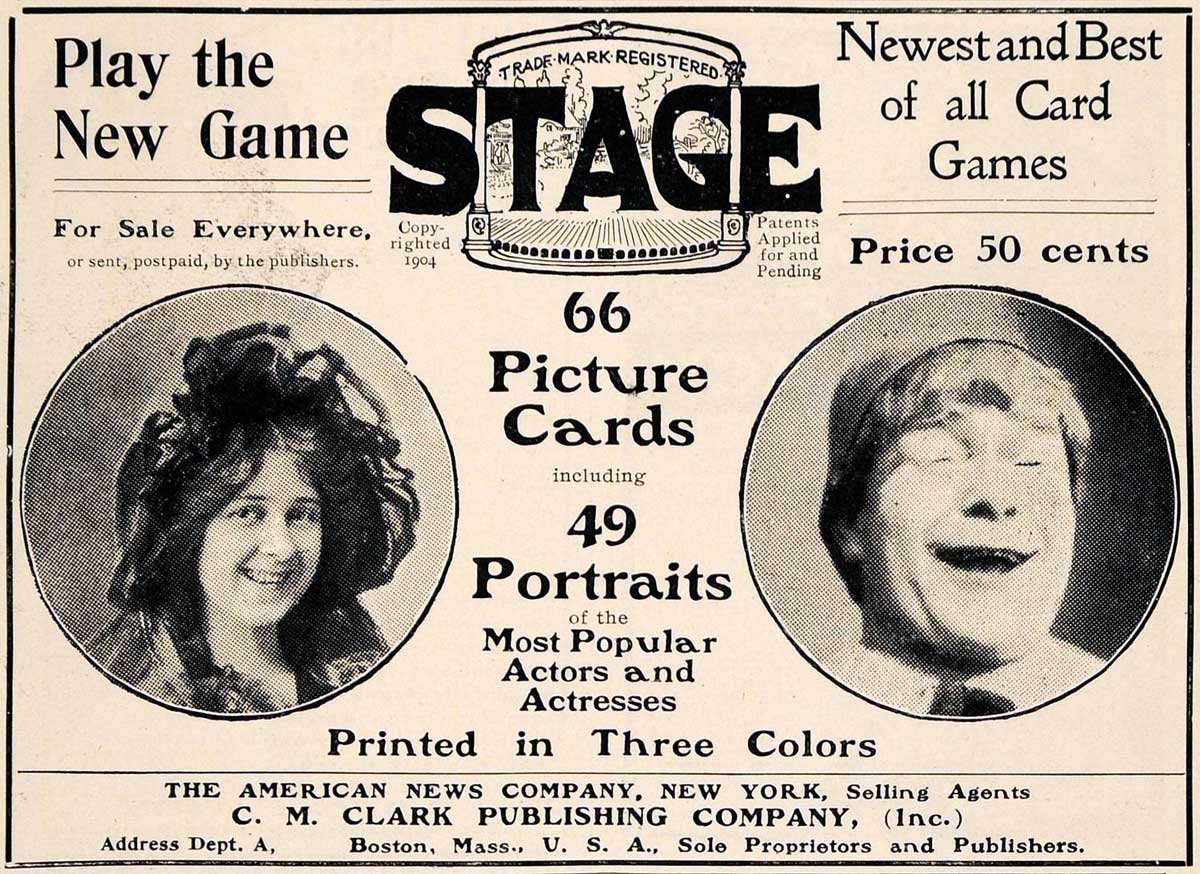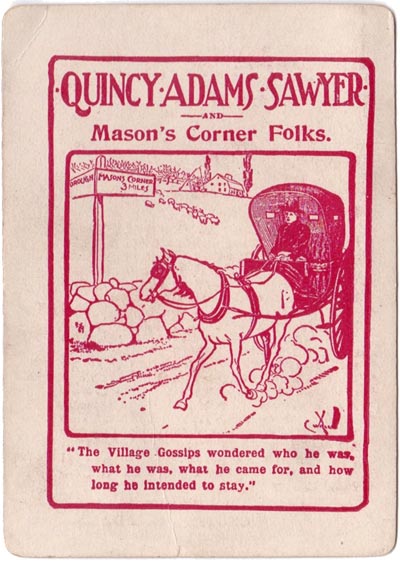Stage
‘Stage’ card game © 1904 C. M. Clark Publishing Co. Boston, Mass. with portraits of popular actors and actresses.
‘Stage’ novelty card game was published in 1904 by C. M. Clark Publishing Co. Boston, Massachusetts with portraits of popular actors and actresses. Contemporary advertising described the game as the “Newest and Best of all Card Games”, “Learned in a Twinkling” and “Never Forgotten” which today might be equivalent to the excitement of playing pokies. Seven branches of drama are represented: Grand Opera, Tragedy, Drama, Comedy, Comic Opera, Vaudeville and Farce, along with Audience, Holiday, Blizzard and Deadhead cards. The object of the game is to be the first player to fill one of the classes of theatre with the artists that belong there and an audience. C. M. Clark Publishing was in existence until 1912.
[[$gallery]]
Above: ‘Stage’ card game © 1904 C. M. Clark Publishing Co. Boston, Mass (whose proprietor was Carro Morrell Clark (1867-1950) the first female publisher in the USA). 66 cards in box. The extra card (shown right) was probably part of a publicity campaign to sell a book by Charles Felton Pidgin (1844-1923) by the same publisher.


Footnote (courtesy Ken Clark): C. M. Clark was sued by the U.S. Playing Card Company, Cincinnati over copyright infringement concerning the term "Stage". U.S. Playing Cards won the first round, but C. M. Clark appealed, eventually won the case in US federal court, and was able to continue producing the game. See also: Wikipedia Carro Morrell Clark►

By Rex Pitts (1940-2021)
Member since January 30, 2009
Rex's main interest was in card games, because, he said, they were cheap and easy to get hold of in his early days of collecting. He is well known for his extensive knowledge of Pepys games and his book is on the bookshelves of many.
His other interest was non-standard playing cards. He also had collections of sheet music, music CDs, models of London buses, London Transport timetables and maps and other objects that intrigued him.
Rex had a chequered career at school. He was expelled twice, on one occasion for smoking! Despite this he trained as a radio engineer and worked for the BBC in the World Service.
Later he moved into sales and worked for a firm that made all kinds of packaging, a job he enjoyed until his retirement. He became an expert on boxes and would always investigate those that held his cards. He could always recognize a box made for Pepys, which were the same as those of Alf Cooke’s Universal Playing Card Company, who printed the card games. This interest changed into an ability to make and mend boxes, which he did with great dexterity. He loved this kind of handicraft work.
His dexterity of hand and eye soon led to his making card games of his own design. He spent hours and hours carefully cutting them out and colouring them by hand.
Related Articles
Most Popular
Our top articles from the past 28 days

























